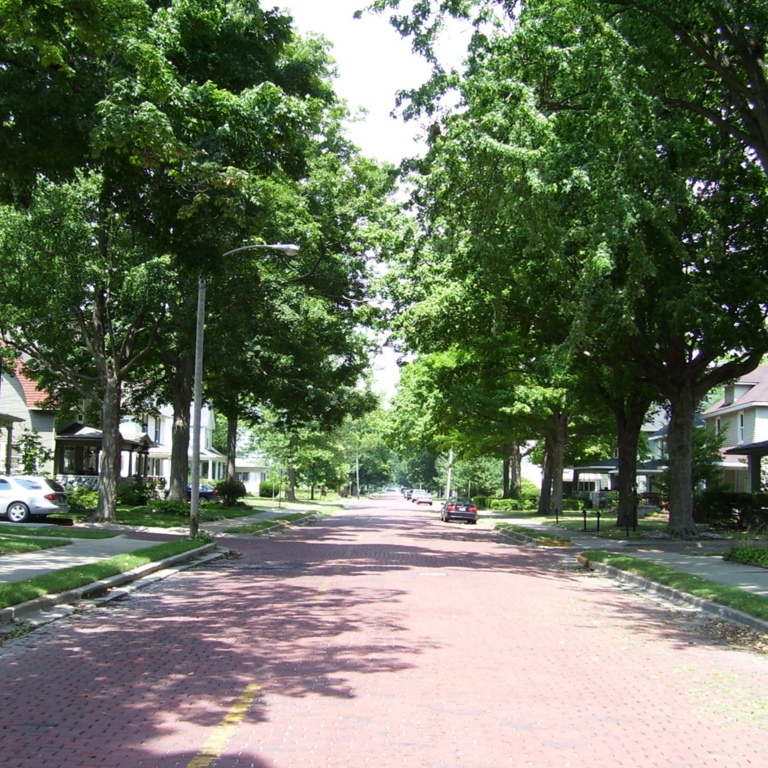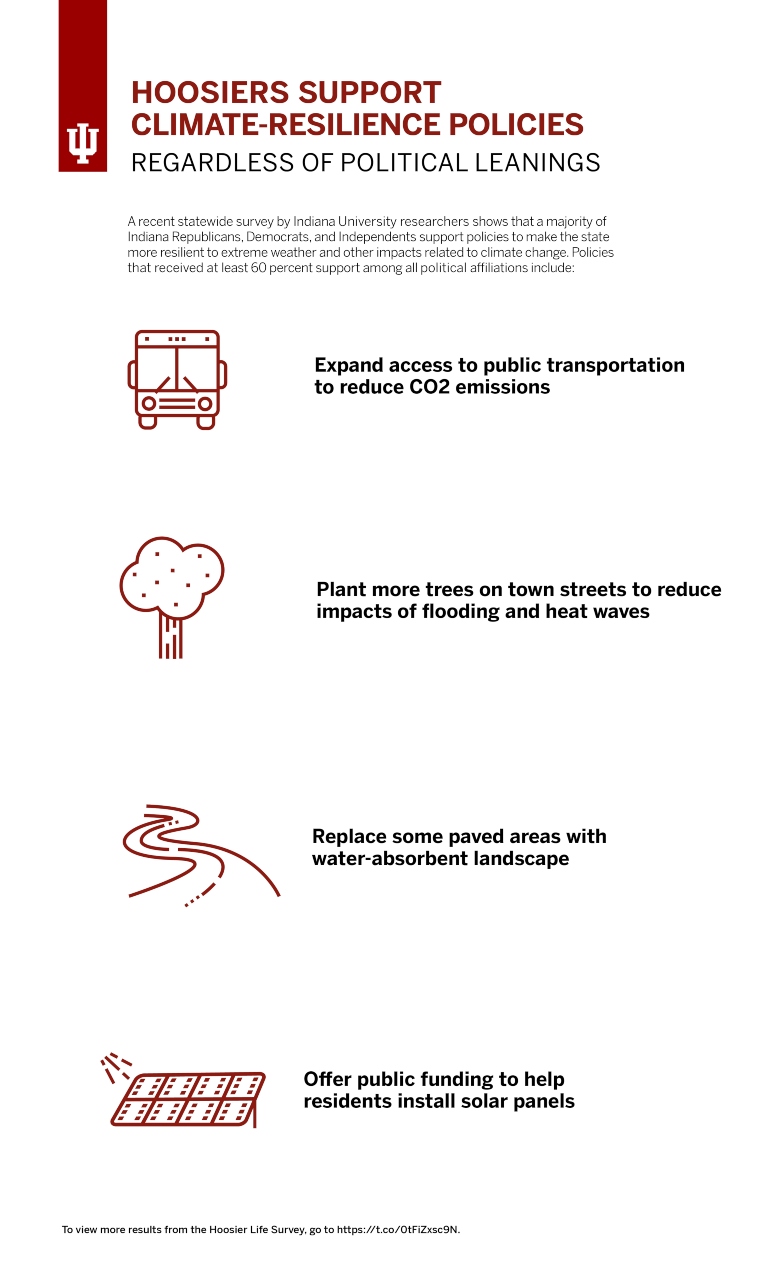As Hoosiers cast their ballots in the June 2 Indiana primary, new survey results from Indiana University's Environmental Resilience Institute show Republicans, Democrats, and independents in the state agree much more on the solutions to address climate change than they do on the issue itself.
The findings are a result of the Hoosier Life Survey, part of IU's Prepared for Environmental Change Grand Challenge initiative and a comprehensive effort to gauge Hoosiers' attitudes toward the environment and extreme weather. New survey analysis, summarized in the latest HLS report (view an accessible version of the report), addresses relationships between political affiliation, Hoosiers’ views of climate-resilience policy and programs, and Indiana residents’ beliefs and concerns about climate change.
Similar to national polls, Indiana Republicans and Democrats express differences in perceptions, explanations and risks related to climate change—with Democrats more likely to believe that humans are the primary driver of climate change and more likely to believe that people in the state will be harmed by it. Even Hoosiers’ perception of how their local weather has changed is shaped by their political affiliation, with Democrats and independents more likely than Republicans to believe that extreme events, such as heavy rains or heat waves, have occurred more frequently over time.
“Even within a single geographic area, people’s perception of the weather appears to track with their political leanings,” said Eric Sandweiss, IU professor of history and co-leader of the survey. “For example, Indianapolis residents who identify as Republicans are about half as likely as their Democratic neighbors to believe that they’ve experienced more heat waves in recent years than they did when they first began living in the area.”
Despite the partisan divisions, Hoosiers of all party affiliations express a generally high level of support for implementing policies to address the threats of actual climate change-related impacts, such as more flooding.
When asked if they support a selection of climate-resilience policies, at least 60 percent of Indiana Republicans, Democrats, and independents indicated they “support” or “strongly support” proposals such as:
- Expanding access to public transportation to reduce emissions
- Offering public funding to help residents install solar panels to reduce emissions
- Planting more trees on town streets to reduce impacts of flooding and heat waves
- Replacing some paved areas with water-absorbent landscape
“On average, Hoosiers who identified as Republican or independent expressed lower levels of support than their Democratic neighbors of policies to prepare communities for extreme weather events and to reduce greenhouse gas emissions,” said Matt Houser, an IU sociologist and Environmental Resilience Institute research fellow who co-led the survey. “Nevertheless, the overall levels of support among all political affiliations suggest Hoosiers do generally back policies that address climate change related-risks at the community level.”
Indiana partisans also generally agree on who they think should pay for such hypothetical policies. A majority of Hoosiers from each party support taxing corporations and companies and taxing Indiana residents who earn over $165,000 a year (roughly three times the state’s current median household income) to fund resilience programs and policies in the state.
Additional findings from the new HLS politics and climate change report include:
- Approximately 58 percent of Democrats believe that humans are the primary cause of climate change, while only 16 percent of Republicans believe the same. A greater share of Republicans (26 percent) believe that climate change is not happening at all.
- Younger Democrats and Republicans are much likelier than their older counterparts to believe that humans are the primary drivers of climate change.
- The type of community in which a respondent lives—rural, small town, suburban or urban—appears to shape the relationship between politics and climate change beliefs. Only 6 percent of rural Republicans believe that humans are the primary cause of climate change, compared to 23 percent of suburban Republicans. Similarly, rural Democrats (49 percent) were less likely to attribute climate change primarily to human actions than were their suburban (66 percent) and urban (63 percent) counterparts.
View the HLS Climate Change & Politics report View an accessible version
About the Hoosier Life Survey
Conducted between August and December 2019, the Hoosier Life Survey captures how Indiana residents perceive environmental changes, how residents are being affected in their homes and communities, how Hoosiers are preparing, and what they expect in the future.
The survey was sent to 10,000 Hoosiers across eight pre-defined regions in the state to ensure adequate geographic coverage. The margin of error for the survey report fell within plus or minus 2.3 percentage points, with a confidence level of 95 percent.
View an opinion map from the Hoosier Life Survey




